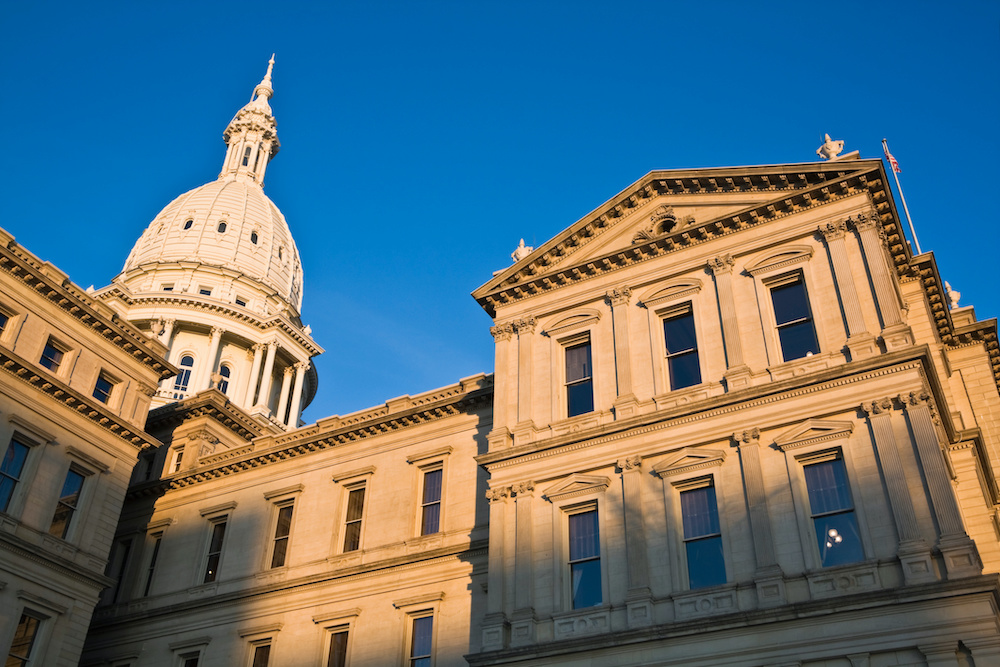
- Details
- By Native News Online Staff
LANSING, Mich.— Two state Senators in Michigan have introduced bipartisan legislation that would ensure Native American children can benefit from guardianship assistance, including permanent placement with guardians instead of temporary foster care.
The bills, introduced Sen. Jeff Irwin (D-Ann Arbor) and Sen. John Damoose (R-Harbor Springs), would fix a “fundamentally unfair situation” in the state’s Guardianship Assistance Program (GAP), according to Irwin. Currently, children with guardianship orders from tribal courts or out-of-state courts do not qualify for assistance through GAP.
“We know of at least 10 Sault Tribe families and many other Native families from around the state who have been impacted by the current laws on Guardianship Assistance Program benefits because their cases involve a tribal rather than a state court,” Austin Lowes, chairman of the Sault Tribe of Chippewa Indians, said in a statement. “When this happens, children have to remain in unfamiliar foster homes rather than in the home of a close relative, and those foster families may not uphold tribal cultures or customs.”
The United Tribes of Michigan, which works on behalf of Michigan’s federally recognized tribes, supports the bills.
“Guardianship is greatly needed, as it most closely resembles and honors our traditional practices, while ensuring legal protections for our children,” according to Jamie Stuck, President of the United Tribes of Michigan. The legislation would allow for all of the 12 federally recognized Tribal Courts in Michigan to access GAP funds and serve Michigan’s Indigenous children.
“The Tribes and the state have recognized each other’s sovereign status by the implementation of conforming laws for the protection of minors, such as the Michigan Indian Child Welfare Protection Act,” Stuck said. “The GAP amendments continue this laudable process of mutual recognition of tribal protection court orders and state guardianship processes to offer seamless protection of children across jurisdictional borders of the Tribe and the State, while at the same time, recognizing the legitimate independent interests of each tribal sovereign and the state.”
Whitney Gravelle, president of the Bay Mills Indian Community, expressed support for the bills.
“Over the last several decades at Bay Mills, we have had multiple children who have not been able to participate in the Guardianship Assistance Program but desire guardianships to preserve the established familial relationship with their parents,” Gravelle said in a statement. “By enacting this (legislation), both the State of Michigan and Tribal Nations will strengthen services provided in guardianships so that we can better serve our children and our families across the Great Lakes.”
More Stories Like This
Native News Weekly (August 25, 2024): D.C. BriefsUS Presidents in Their Own Words Concerning American Indians
Native News Weekly (January 18, 2026): D.C. Briefs
Federal Judge Orders ICE to Halt Use of Pepper Spray, Arrests of Peaceful Protesters in Twin Cities
Tunica-Biloxi Cultural Leader John D. Barbry Walks On
Help us defend tribal sovereignty.
At Native News Online, our mission is rooted in telling the stories that strengthen sovereignty and uplift Indigenous voices — not just at year’s end, but every single day.
Because of your generosity last year, we were able to keep our reporters on the ground in tribal communities, at national gatherings and in the halls of Congress — covering the issues that matter most to Indian Country: sovereignty, culture, education, health and economic opportunity.
That support sustained us through a tough year in 2025. Now, as we look to the year ahead, we need your help right now to ensure warrior journalism remains strong — reporting that defends tribal sovereignty, amplifies Native truth, and holds power accountable.
 The stakes couldn't be higher. Your support keeps Native voices heard, Native stories told and Native sovereignty defended.
The stakes couldn't be higher. Your support keeps Native voices heard, Native stories told and Native sovereignty defended.
Stand with Warrior Journalism today.
Levi Rickert (Potawatomi), Editor & Publisher


